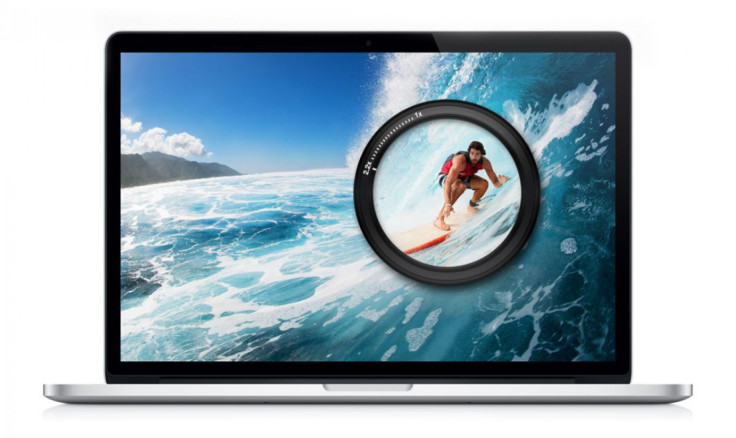Apple’s New Retina MacBook Pro Release Date: Device Rumored For October Launch With High-End Haswell Processors

Apple (NASDAQ:AAPL) may release its new Retina MacBook Pro model, powered by Intel’s Haswell processors, sometime in October, not mid-September as some earlier rumors suggested, according to a new report.
The latest tidbit came from Japanese website Macotakara, which cited a report from China Times saying that the next-generation version of the MacBook Pro will not ship until October as Apple is having yield problems with the high-resolution Retina display in its notebooks. The report also said that the price of the new MacBook Pros will remain the same as the previous models.
The new report contradicts analyst Ming-Chi Kuo of KGI Securities, who said earlier this week that Apple could release the refreshed MacBook Pros with the Haswell processor in mid-September.
The new Haswell processors, which are already found in the new MacBook Air, offer small improvements in terms of processor speed, but they make the device consume much less power compared to previous models.
Due to the new Haswell processors, the 13-inch version of the MacBook Air now offers an "all-day battery life" of up to 12 hours, while the battery in the 11-inch model lasts for nine hours. The chips also support the latest 4K displays that offer resolution four times that of standard HD displays, MacRumors reported.
Meanwhile, another report from SemiAccurate, on Thursday, said that Intel will provide Apple with an ultra-high performance version of the Haswell processor for the new MacBook Pros. According to the report, Apple asked Intel to equip the Haswell processor with a special version of Intel's highest-end GT3e (Iris Pro 5200) integrated graphics with “as much GPU power as possible.”
Reports said that the recently measured benchmarks of the 15-inch MacBook Pro revealed a Core i7–4950HQ chip clocking at 2.4GHz, along with Iris Pro 5200 integrated graphics.
According to Intel’s own promotional materials, the company’s new Iris integrated graphics offer 2 to 2.5x the performance power of the i7–3840QM chip with HD Graphics 4000 in the current high-end Retina MacBook Pro.
© Copyright IBTimes 2024. All rights reserved.






















